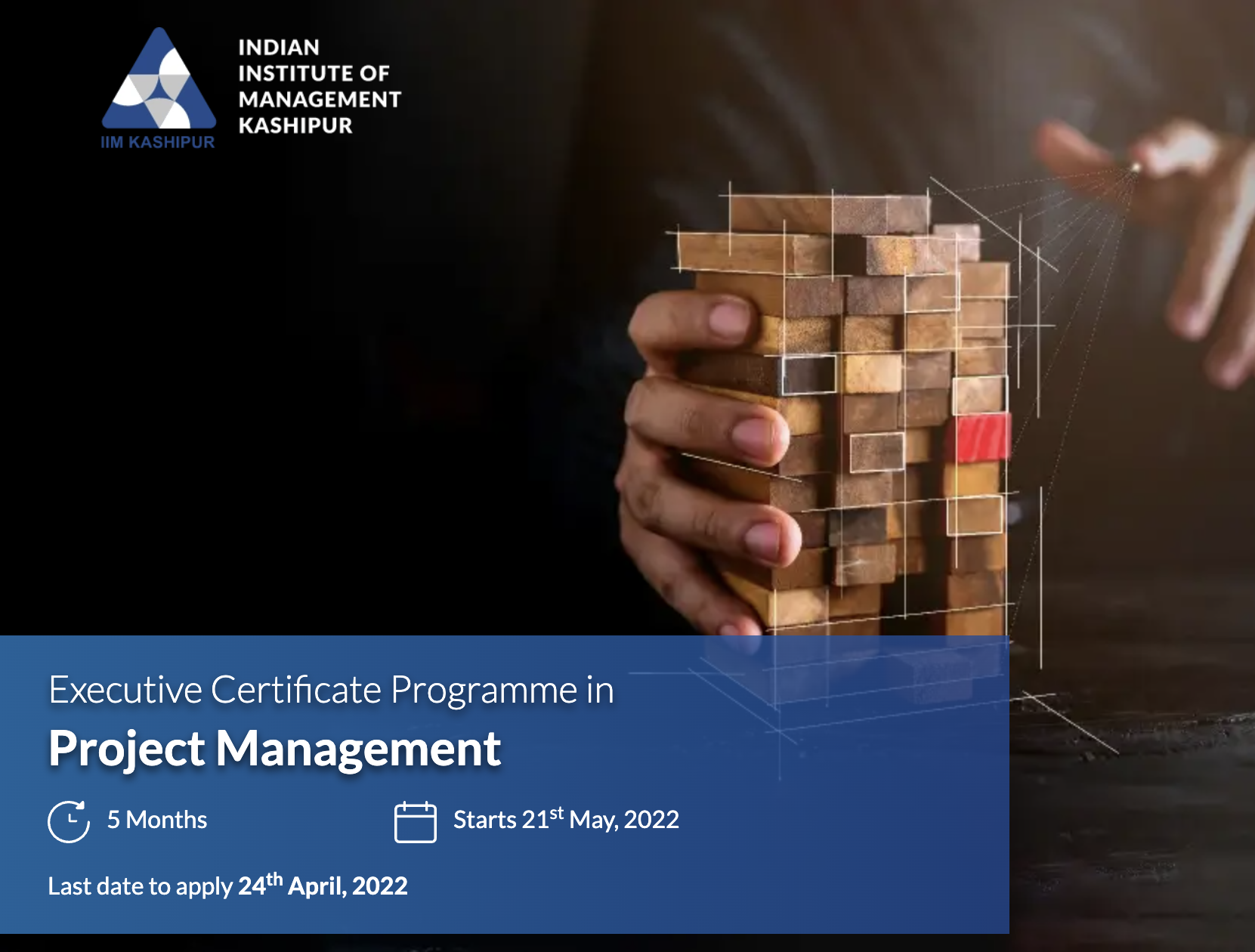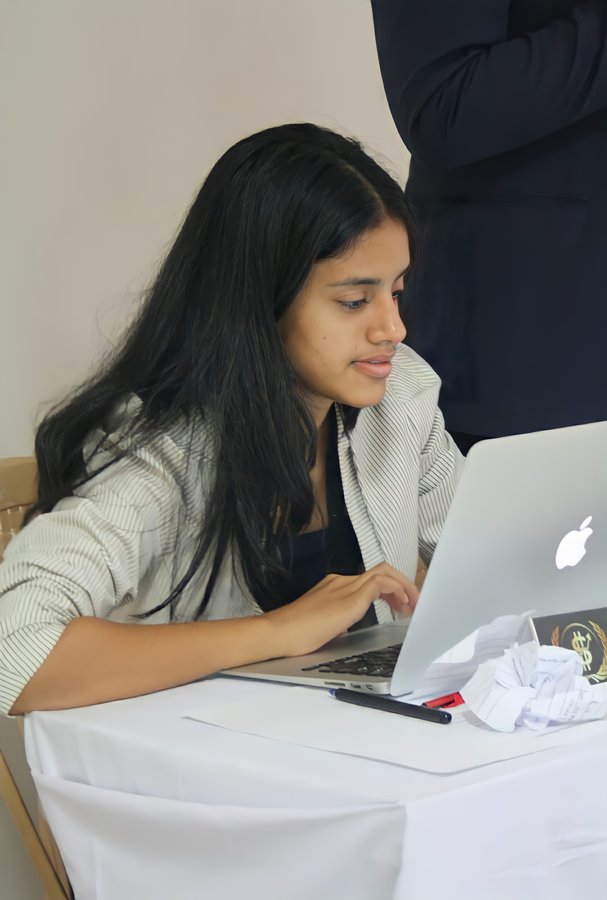Project Management as a Career for Women
5 minuteRead

Project Management as a Career for women- what is it? Courses, all you need to know
Firstly, what is a Project Manager?
A project manager is someone who is in charge of the day-to-day management of a project and has to organise, plan, and execute projects while adhering to budget and scheduling constraints. Project managers are responsible for directing teams, creating goals, interacting with stakeholders, and overseeing the completion of projects. The project manager is accountable for the project's success or failure, whether it's executing a marketing campaign, building a building, designing a computer system, or introducing a new product. There is a lot of scope for women in project management as they are needed in almost every business, from technology to retail to publishing. You could work for a small business or a large multinational as a project manager. You can work full-time, part-time, or as a consultant. Project management tools and skills required for this job are transportable, which is a significant plus. Project managers frequently have the ability to move between industries with ease.
The project manager is responsible for the following tasks during the project's lifecycle: Determining the project's scope, keeping to the schedule, estimating the cost of a project and sticking to a budget, project resource management (including teams and workers), keeping track of the project's progress, interaction with stakeholders, identifying risks, troubleshooting and quality control.
To apply for a project management role, what basic abilities do you need?
Women in project management need a mix of hard and soft skills, technical knowledge, and a grasp of the business environment in which you'll be working.
Hard skills
You'll need a solid grasp of basic project management ideas, processes, and tools to help you create a solid project plan, identify project stakeholders, and manage project risks, More institutions are offering project management courses, but you may also study the essentials by enrolling in online courses for women, listening to podcasts on the topic, and attending related webinars to stay current on any new advancements. Here are some project management courses for women that will make your start to the career easier:
Google Project Management: Professional Certificate
By taking this Google project management course through Coursera, you can master in-demand skills and be job-ready in less than six months. There are no prerequisites such as a degree or prior experience. Immerse yourself in the abilities and skills required to succeed in an entry-level project management career. Learn how to develop valuable project documentation and artefacts at various stages of the project, the fundamentals of Agile project management, with a focus on running Scrum events, creating Scrum artefacts, and understanding Scrum roles. Using real-world scenarios, you can practise strategic communication, problem-solving, and stakeholder management.
Executive Certificate Programme in Project Management by IIM Kashipur
IIM Kashipur's Executive Certificate Program in Project Management focuses on delivering current information, tools, and methodologies for managing all stages of the project lifecycle and accomplishing project goals to the satisfaction of all project stakeholders. Project management is the application of knowledge, skills, tools, and strategies to successfully achieve project objectives. As a project manager, you are responsible for attaining key objectives, which may be quantified in terms of outputs, outcomes, or benefits.
Udemy Project Management Courses
Udemy has a variety of project management courses such as Trello Project Management: Complete Course, Agile PM 301 - Mastering Agile Project Management, Project Management With MS Project - Scheduling Master Class, Lean Project Management, which teaches you a range of project management tools and different ways to learn about project management.
Project Management Professional (PMP)
The Project Management Professional (PMP)® certification is the most widely recognised project management credential in the world, and one of the best courses for women in project management. The PMP® certification now includes predictive, agile, and hybrid approaches, demonstrating project leadership experience and expertise in any mode of operation. It helps firms locate the people they need to work smarter and perform better, and it boosts project leaders' careers across industries. Take the PMP® certification exam whenever it is convenient for you, whether at home or at work. Find out more about the online proctored exam and how to prepare for it.
Soft skills
You'll need to learn to communicate effectively, actively listen to your colleagues and stakeholders, and motivate your team in this role. These are abilities that we learn at school, such as collaborating on a presentation with peers, leading a field trip, planning an event, or participating in discussions. Nonetheless, without practice, they can quickly become dull, thus they must be sharpened on a regular basis.
Emotional intelligence, or the capacity to recognise your own and others' emotions, is an example of a relevant soft talent. Critical thinking is logical and reasoned reasoning. It assists you in determining the root reasons of any given issue. Decision-making is also important since it allows you to think and choose the optimal course of action. The power to inspire or persuade others is known as influence. You'll need to know how to motivate people as a project manager even if you don't have authority over them. Take the time to meet with each of your coworkers one-on-one and learn about their specific ambitions. Use what you've learned to connect their contributions to a cause that will motivate them.
Technical know-how
You'll also require a basic awareness of the project's technical features. If you're adopting a new HR application, for example, you should spend some time learning about the technical features of the software, such as the development phases, configuration tools, and how it's tested and integrated. You don't have to be an expert; just having a basic grasp will help you gain credibility with your team and stakeholders. It will also assist you in convincing your sponsor of a plan of action.
A fundamental awareness of the business environment
Connecting project outcomes to actual business concerns and your organisation's strategic goals is critical for project buy-in and success. When that link is created, most stakeholders, including senior management, will be more supportive of the project because they will recognise how it contributes to an organisational priority.
Being a woman in project management takes more than just hands-on experience, technical expertise, or a project management qualification to become a good project manager. It's about the chance to broaden your knowledge and forge strong bonds with your stakeholders. You may make your own modest contribution to crafting a better future for humanity by pursuing a career in project management, which is more vital now than ever before.
Write, Record and Answer! Consume Unlimited Content! All you need to do is sign in and its absolutely free!
Continue with one click!!By signing up, you agree to our Terms and Conditions and Privacy Policy.


















